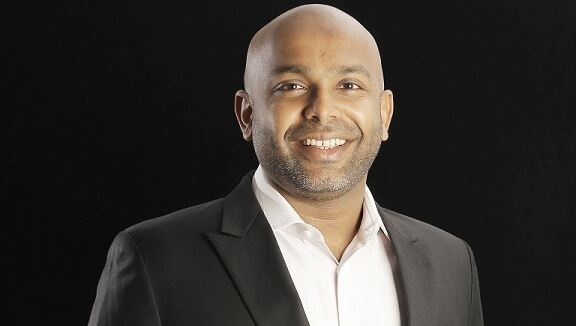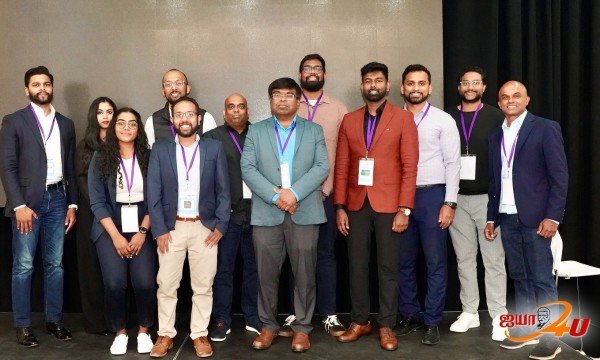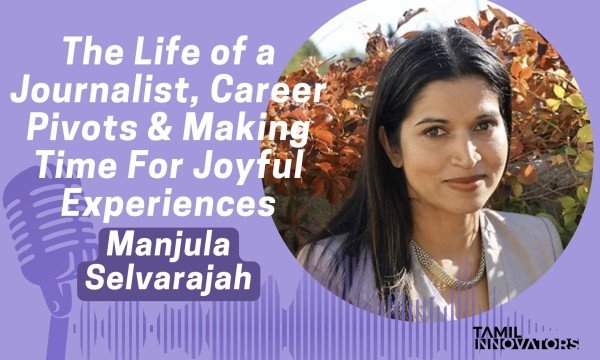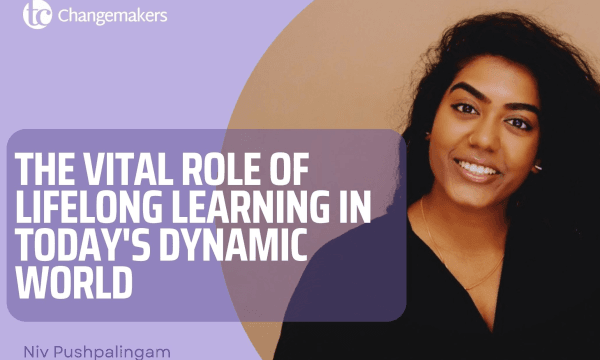
Rukmankan Sivaloganathan has several years of experience in the financial services sector. He has held senior positions in transaction banking at HSBC, Citi, and Standard Chartered Bank in Sri Lanka, London, and Singapore. He was also involved in mobile money, remittances, and prepaid card initiatives in all three banks. He returned to Sri Lanka in 2011 to set up a few ventures of his own. I caught up with him during my visit to Sri Lanka.
What made you choose the university path that you chose, starting with your undergrad?
I liked economics, finance and business and I didn’t want to do a management degree because I fancied becoming an economist and felt that management was a vague subject that you could learn about by reading books.
Had anyone influenced that choice at all?
Not at all. I’ve always had strong ideas about what I wanted to do from a fairly young age. I felt that my undergrad experience was a bit underwhelming as I was working throughout and studied as a external student at the University of London, and so missed out on a lot of the extra-curricular aspects of uni life. Therefore when it came to my postgrad, I felt that I should study overseas at a top school. I applied to INSEAD because it was one year programme, very highly rated, had two campuses in parallel and was very diverse.
How did you find your experience at INSEAD overall?
I would say it’s been the highlight of my life so far. It’s an amazing school with a fairly intense curriculum - approx. 80% of the workload of a two-year MBA crammed into one, but also a well deserved reputation for being a party school. I’m happy to note that it has now been the No. 1 business school for 2 years in a row.
INSEAD also made me introspect a bit. I went there looking to make a career in finance but ultimately discovered that my true strengths lay in exploring my ideas on my own and being the master of my own destiny. This self-discovery was certainly helped by the somber mood globally as 2009, when I did my MBA, was when the true impact of the financial crisis was being felt and banking and finance became less sought after as a profession.
When you graduated and were done studying, were you content with what you had chosen to study? Did you feel that it was the right choice for you? (Starting with your undergrad.)
Throughout my undergrad I had my eye on one job – a position on the HSBC management trainee program which took in only four candidates each year. Since an undergrad degree was a pre-requisite and this role was in line with the banking and finance route I’d wanted to take, I was pretty happy with what I was studying at that time.
Your first job after your undergrad, was it simply a job for you or was this a company you were truly passionate about working for?
I loved the HSBC job because the management program was superb – they really throw you into the deep end. I was 22 and I was managing a team where the second youngest person was 5 years older than me. You are part of the management group and nobody would say to you “what do you know, you’re just a 22 year old.”
The learning curve was pretty steep but at the same time it was awesome because I was learning a lot: managing people, including difficult ones, managing teams, managing upwards etc. Those four years were very important to building a professional profile which helped when it came to applying to an MBA.
After your 4 years at HSBC, what was it that made you want to leave the corporate world?
I was 26, had 7 years in the corporate world under my belt and wanted to upskill myself and work overseas in a global role. At the point when I applied to INSEAD I didn’t necessarily want to leave the corporate world but wanted to explore what other opportunities I had within the corporate world.
So during that year itself you knew you were going to leave.
This was when I was at SCB in Singapore post INSEAD. Yes, I was already making spreadsheets of ideas that I wanted to do.
How did people around you react to your decision to leave a secure job?
Most people were quite encouraging. But I’ve always sort of done what I wanted and never really relied on other people’s opinion or asked people before I do things. So no one really questioned it. I suppose some of them were wondering what it was all about. But it wouldn’t have really impacted my decision either way.
What was the first business idea that you went with?
The first proper business idea was while at INSEAD. I had this idea to sort of revolutionize bus services here in Sri Lanka by using different route managing techniques, dynamic pricing based on which language you use etc. The transport sector, especially the bus system, was very inefficient and was ripe for disruption.
Can you tell us a bit about Trekurious.com and how that came about?
Trekurious came about basically as a result of some gaps that I found while organizing my class’s graduation trip to Sri Lanka in 2009. I found that the whole system wasn’t setup to deal with demanding, affluent class clients who want premium level service.
I felt that there had to be a better way to deliver world class experiences to travelers but wasn’t quite sure how. In 2011, I was in Vietnam and while visiting MỹSơn, an ancient Hindu temple complex, our guide fell sick and so the tour company hired an archaeologist as our guide. The entire experience was amazing as the guy knew the place like the back of his hands and had interesting inside stories to share. At this point the concept was there but the model wasn’t quite clear and it was my co-founder who came up with the idea to make it a curated marketplace.
What made you decide to leave your operations role in Trekurious?
The business was struggling after 3 years and we were finding it hard to scale as the product-market fit wasn’t quite right. We had also been distracted by venturing into culinary experiences and by the expansion into India. As such, it was quite hard to raise funding to keep going, which was also not helped by the slowing down of VC investments in India, from where we were trying to raise money. Finally, we had to sell the company and the brand to someone who could fund it and keep it alive.
I know you currently have multiple projects that you’re working on at the moment. Can you tell us a bit about those projects?
Well one of them is a travel agency focused on affluent Chinese travelers. Chinese travelers are the fastest growing segment in Sri Lanka, and they will be the biggest going forward. Since there was very little focus by existing players on the HNWI segment, I decided that would be an interesting niche to pursue. There are a few other projects but they are still at a very early stage and it would be premature to talk about them at this point.
How do you balance all of these projects?
I’m struggling actually. I’m not the best person at managing my time and I’m constantly trying to hack this!
What are some of the techniques that you’re trying to implement right now?
These are all techniques that are fairly obvious – it’s just a matter of following them. i.e. sticking to a schedule, making plans the following night for the next day, and not getting distracted by social media. Not that I’m having any success though.
With the businesses that you’re running at the moment, how do you distinguish yourself from other competitors?
My passion has always been optimizing processes and product development and I suppose these are things that we focus on to differentiate ourselves, i.e. by having better products (travel experiences) and better service standards as well as through more efficient operations.
What are some of the biggest lessons that have impacted the way that you work? What are the lessons that you’ve learned from either the time you were in school or from your work experience?
I wouldn’t say they are lessons but I suppose it’s just dealing with inefficiencies. I have, over time, become very direct in my communication so that feedback is given almost immediately. Passive aggressiveness, a national trait, is something that I avoid.
What are some of the habits/mindsets that have helped make you successful?
First of all, I don’t know whether I’m successful yet. Starting a business isn’t something I’d consider as ‘success’. However, I do have a few traits that define who I am. Whether they are good or bad it not something I have an answer to. One is that I have a huge tolerance for risk and the second is that I err on the side of action, i.e. gut over analysis. The jury is still out.
When you’re faced with major challenges or having to balance all of these various projects on your own for the most part, how do you manage that?
I don’t often get stressed, except when I have to talk in front of an audience! I’m not sure how but I’ve managed to quell my OCDness and propensity to fret when things aren’t perfect and so I’m not pretty zen about things. Eventually it all works out and to be honest, none of the problems I have faced, such as not being able to raise capital or increase sales, are real problems. They all eventually pass.
There was political turmoil in Sri Lanka and many people were leaving the country. What made you want to stay in the country and set up a business, despite political and business uncertainty?
There always was political turmoil and there will always be political turmoil. That’s a given. At the time I came back, there was a lot of positivity about Sri Lanka given that the war had ended. Sri Lanka is perfectly placed geographically and the fact that it hasn’t received more investment and that it’s not more prosperous is because we have not had farsighted political leaders. One of the reasons I came back was that, post-war, Sri Lanka had tons of opportunities in many sectors. Given my interest in the travel and leisure sector and given that this sector would perhaps be the most important one to Sri Lanka, it was a no brainer to come back.
Personally, there’s no other place I would want to live in the long term than here. The lifestyle, if you are reasonably successful, is amazing, all my friends are here, and there are lots of opportunities.
What are some key pieces of advice you would offer to a young entrepreneur – someone who is just starting out or is in the corporate world and ready to take a similar risk that you did?
There really isn’t anything I can say that hasn’t been said before. But I’ll say one thing. A lot of my friends ask me “I want do something. I’m sick of my banking/lawyer job. How do you take the plunge?” And I tell them that you just know. When you loathe going into work and the thought of not getting a regular pay cheque no longer scares you as much as it did, then you know you’re ready.
-Interviewed by Byravi Dineshkumar

























